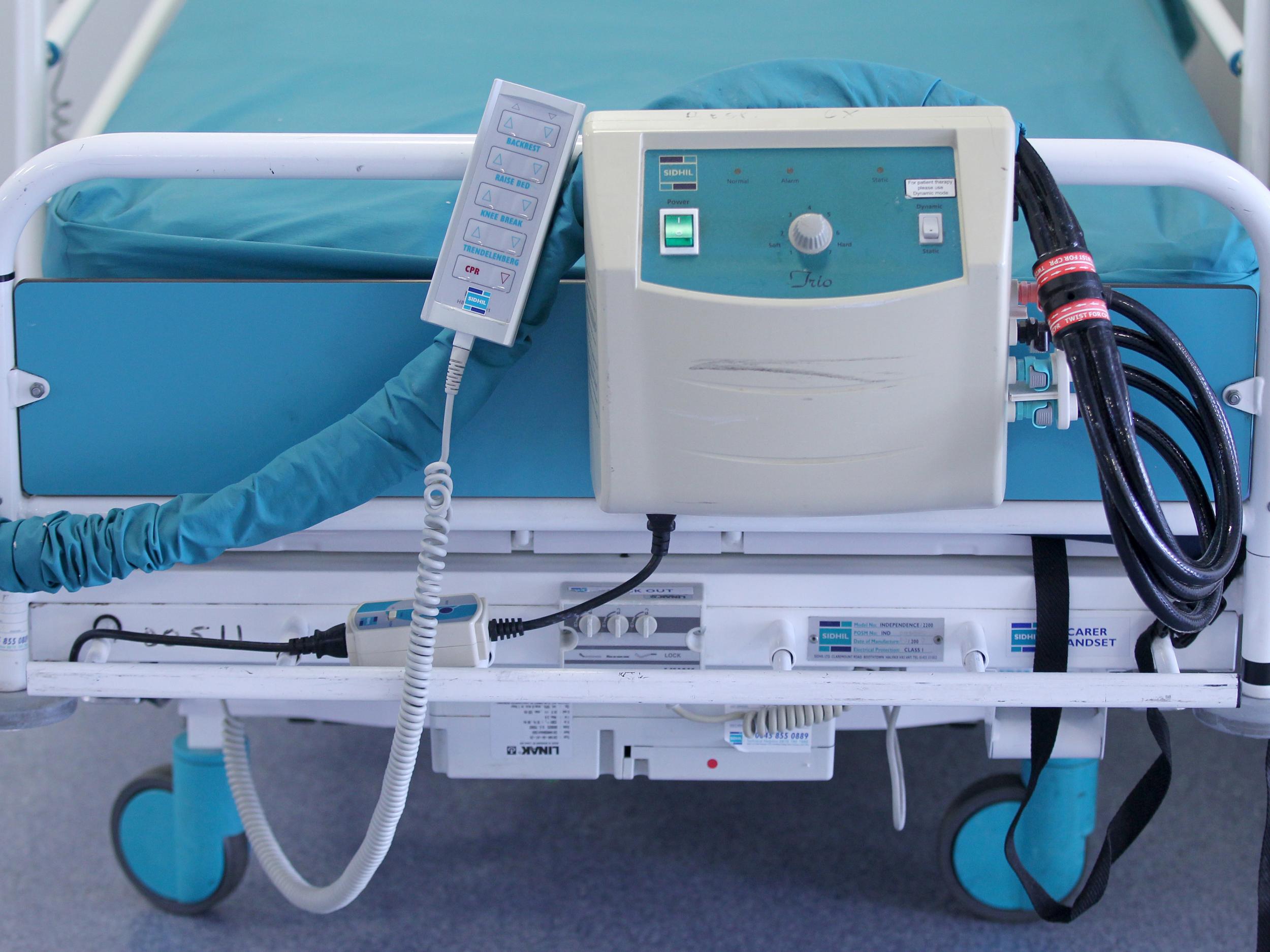Entire regions of England left without beds for mentally ill children
Children placed in adult wards

Your support helps us to tell the story
From reproductive rights to climate change to Big Tech, The Independent is on the ground when the story is developing. Whether it's investigating the financials of Elon Musk's pro-Trump PAC or producing our latest documentary, 'The A Word', which shines a light on the American women fighting for reproductive rights, we know how important it is to parse out the facts from the messaging.
At such a critical moment in US history, we need reporters on the ground. Your donation allows us to keep sending journalists to speak to both sides of the story.
The Independent is trusted by Americans across the entire political spectrum. And unlike many other quality news outlets, we choose not to lock Americans out of our reporting and analysis with paywalls. We believe quality journalism should be available to everyone, paid for by those who can afford it.
Your support makes all the difference.Whole regions of England were left without any specialist inpatient mental health beds for children on three occasions last year, a new report states.
On two dates in April 2016 there were no Child and Adolescent Mental Health Services (CAMHS) inpatient beds available in the NHS South region which covers the South East, South Central and South West.
And on June 1 2016 there were no CAMHS beds in London, according to a new report from the Education Policy Institute (EPI).
A new report on children's mental health inpatient services from the EPI states that there have been "capacity problems" in the past year.
As a result, this can lead to children being treated on adult wards or other paediatric hospital wards, children being admitted to hospital a long way from home or young people being "inappropriately" supported in the community, the authors wrote.
Between October and December 2016 there were 83 under 18s treated on adult wards, and they spent a total of 2,700 days in adult hospitals.
The consequences of such admissions can be "severe", the authors said, citing examples of a child witnessing a successful suicide attempt and another child being assaulted by an adult patient.
Meanwhile, the report states there were 331 hospital stays for children which were 30 or more miles (50km) from their home in March 2017.
While the number of beds has increased by 71% since 1999 to 1,440 beds across England, the number of beds available in each region varies, the authors found.
Across the country, there is an average of 2.5 CAMHS inpatient beds per 100,000 total population in England.
In the North East the figure is 3.03 beds per 100,000 population, compared with 1.1 in the South West.
Earlier this year, the NHS announced it will provide more beds, and will redistribute them more uniformly.
The report also highlights problems with workforce shortages, and young people being left in hospital for longer than necessary due to a lack of community services
It states that between October 2015 and February 2017 children spent nearly 9,000 days waiting to leave mental health hospitals, yet were unable to do so due to lack of subsequent support.
"This report highlights the many challenges facing the NHS in ensuring all children with mental health problems can easily access high quality care when they need it," said EPI director of mental health Emily Frith.
"While the overall quality of care has improved, our research finds inconsistent provision of inpatient services across England, with shortages in the workforce, as well as evidence of basic standards not being met.
"A sustained focus is needed on recruitment to increase capacity in hospital and community services and to continue to improve the quality of care."
On bed shortages, Sarah Brennan, chief executive of the charity Young Minds, said: "It's deeply distressing for parents to have a child who is so unwell that they require inpatient care — and it's even worse when there are no beds available locally.
"When children are placed in units hundreds of miles from their home, parents may only be able to visit them once a week or once a fortnight, because the distances are so far and travel costs so expensive.
"The work that NHS England is doing to redistribute beds regionally is a move in the right direction, but there is still more to be done.
"Investing in intensive community services would reduce the need for inpatient care, and ease the pressure on the whole system. That would mean fewer children being placed in adult wards, or admitted to units hundreds of miles from their home."
Join our commenting forum
Join thought-provoking conversations, follow other Independent readers and see their replies
Comments